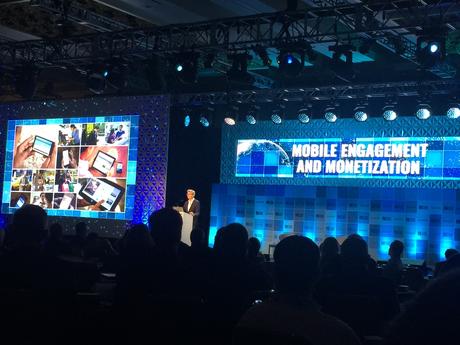
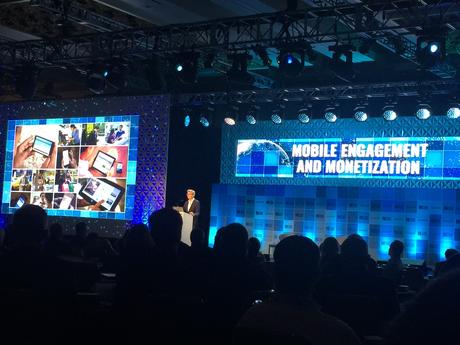
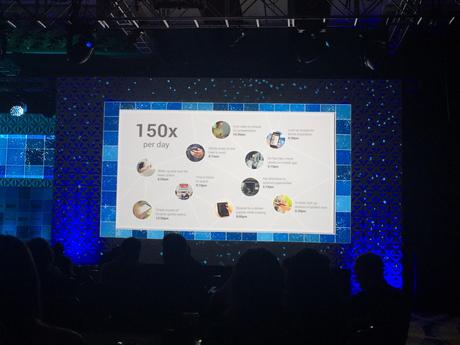
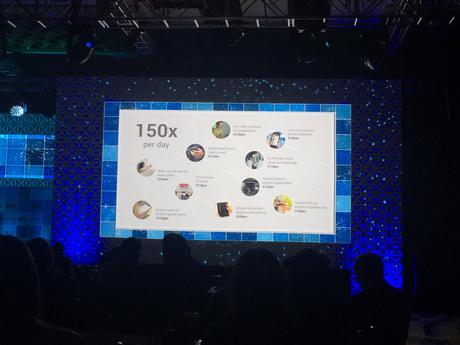
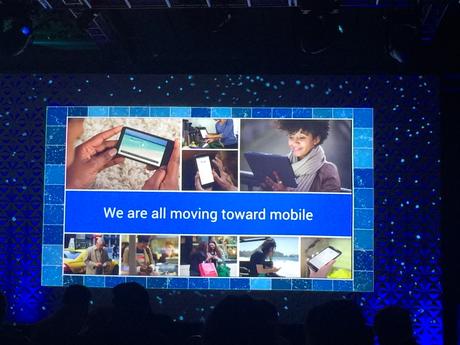
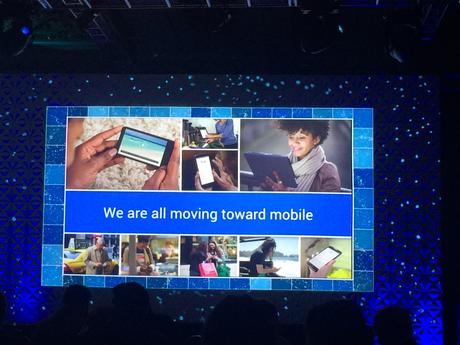
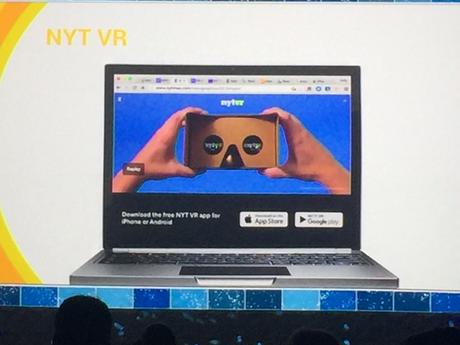
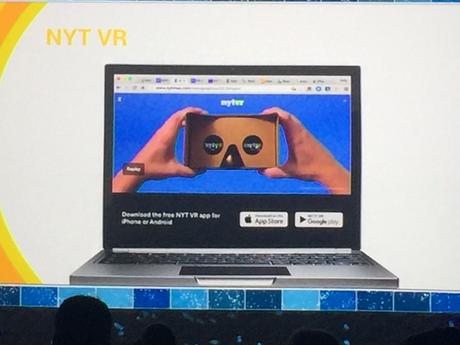
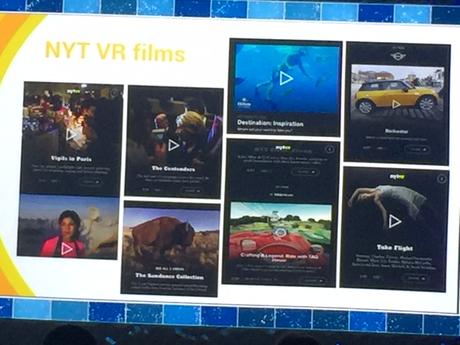
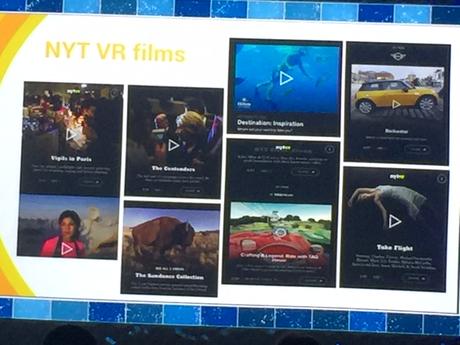
Images show visual highlights of Google's Laurent Cordier's presentation at the Newspaper Association of America conference this week
The speaker was Laurent Cordier, Google’s managing director of global partnerships news and publishing, who reminded the audience that we carry mobile devices on our wrists, our pockets, and that they are the first thing we consult in the morning and the last before we go to sleep.
“From breaking news to recipes this content affects our daily lives in many ways,” Cordier said. “We check our phones on average 150 times a day, like every ten minutes.”
As a result, he said, there is an increase in news consumption.
“By some records, there is up to 3 hours and 8 minutes of news consumption a day,” he said.
I was happy to hear that because in my own presentation I mentioned that, as part of the two tempos of leaning forward and leaning back, we are coming in contact with news in a variety of ways during the day. This, in sharp contrast to 25 years ago, for example, when those who read a daily newspaper spent an average of 23.3 minutes Monday thru Friday and perhaps 90 minutes on Sunday. Their other exposure to news would be via radio or television, but definitely nowhere near 3 hours.
Goodbye to the home page?
Cormier said that for many publishers the home page is still where they think the main point of entry into their brands is.
“The home page is becoming more redundant as other channels of distribution are changing. How do you make the casual reader into a subscriber?,” he said.
It is very important also to create different content for different platforms, he said. “In a world of fragmented distribution, we need to create special content that fits specific platforms.”
Advertising is also moving to mobile, Cordier said, and he forecasts that by 2017, mobile ads will be twice what they are now. And by 2020, he said, mobile advertising will reach $50 billion.
But, he added, we need to take steps to get there, summarizing three important ones—Experience, Context and Engagement.
“The user experience matters, it is great opportunity for us to redesign the users experience. Many users get frustrated with a seemingly endless streaming symbol that stays on the screen for what seems forever,” he said as the image on the screen of his presentation did just that.
He said that 50% of the users tell Google that the most annoying part of getting online is how slow it is to load certain things.
“We are at a tipping point where it is urgent to change the user experience. To take some actions. Many are moving to apps,” he said.
Context matters
Cormier said that advertisers need to change their strategy, too. “Go native advertising,’ he recommended. “We believe in native ads. Native enables better and more effective experiences.”
He mentioned that Google now has the ability to provide publishers with platform for native ads. “Native ads for a multi screen world. Enabling publishers to scale their native ads,” he said.
Virtual Reality
And, he said, while virtual reality is not within the reach of everyone yet, it is a formidable way to tell stories that will be big.
Google worked with The New York Times as it made its first incursions into virtual reality.
To conclude, he added:
“Mobile is going to change consumer behavior and how advertiser presents itself, and how money will be made. Mobile signals a new era.”

